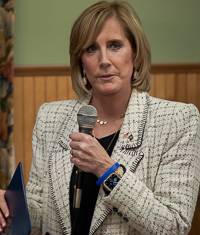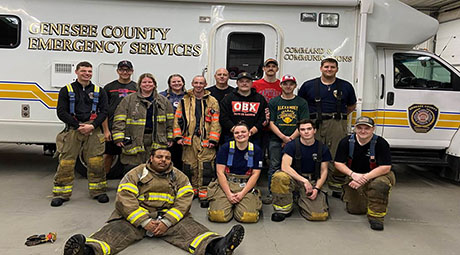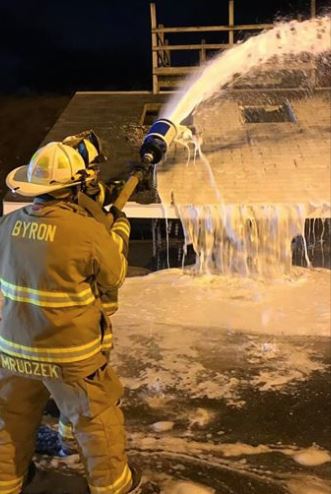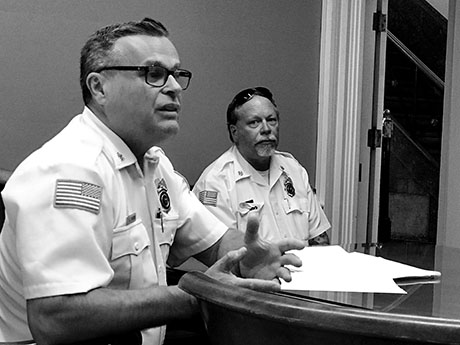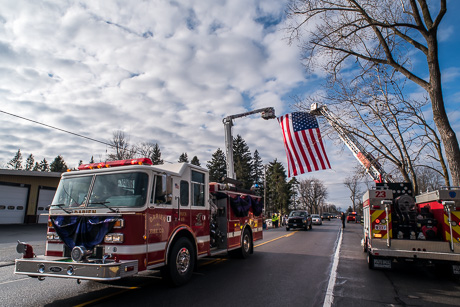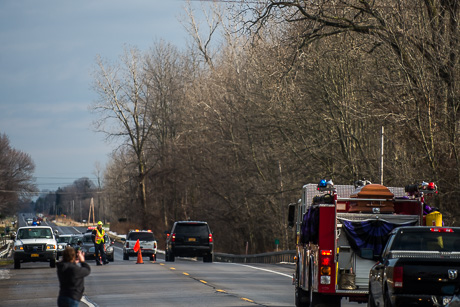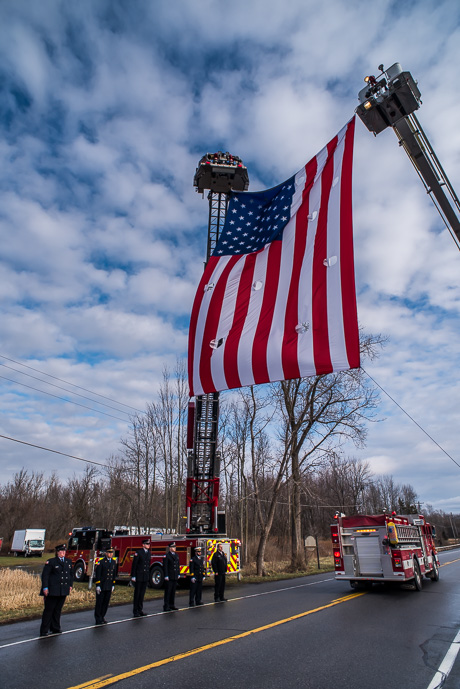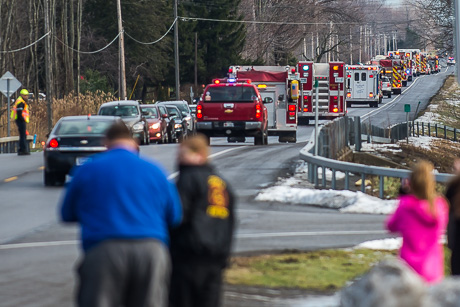Whatever differences of opinion may exist about how to address the problems faced by small, rural volunteer fire companies, one thing pretty much all the stakeholders agree on is this: they are struggling and need help.
So said Emergency Services Manager Tim Yaeger at Monday afternoon's Public Service Committee meeting.
He asked for permission to apply for a state Management Performance Grant offered as part of the 2015-16 Municipal Restructuring Fund Program. Permission was unanimously granted.
The aim is to secure funds to contract with a consultant to assess the county's firefighting needs.
Yaeger said he and Bill Schutt, the West Battalion coordinator for the Genesee County Emergency Management Office, have talked with County Manager Jay Gsell about bringing a consultant on board. Schutt, a volunteer for more than 25 years with Alabama fire, also works full time as general manager of Mercy EMS, where he manages a staff of more than 60 and its fleet of vehicles.
"We want to look at fire services in Genesee County -- how do we provide that service in the future in a very efficient and professional manner," Yaeger said. "As you know, we've had conversations before, we're struggling, in some places more than others."
The amount of funding available to conduct such a study is "kind of open-ended."
Schutt said the grant is designed for consolidation-of-services projects, but fire service was listed as eligible and after confering with state officials, it was deemed that assessment and evaluation of Genesee County fire services would fit within that scope.
"The 10,000-foot view of what we'd like to look at, is what this grant is asking us to apply for, and it kind of goes down from there," Schutt said. "A lot of it is based on what you'd save for money. I don't think this project is going to be looking at saving money directly, but in the long term it will, so there's a way of working it in there in terms of the long term."
Committee Chair Marianne Clattenburg asked how long the process will take.
A timeline is not known. It would be a process of stages, perhaps two or three studies or consultations.
"It's not going to be 'here's your information' and we're going to walk away," Yaeger said, "because it's such a vast program. There's so many moving parts to this."
If, say an initial study is done and that takes six or seven months just to identify what they true issues are, that may constitute the first step.
"This is not going to be done in a year or two and find a solution," Yaeger said. "I think it's going to take a few years to get to a position to where we can make some decisions."
It was asked, when looking at the big picture, if there is consenus amongst those in the firefighting community about what the future is and what changes may be forthcoming.
"I think today more than ever, there's a level of agreement that a level of government beyond the local fire company has to find some solutions for them," Yaeger replied. "I think they'll all agree to that -- that they are not able to find those long-term solutions for themselves and they need assistance.
"And the next step up would be to the county, because obviously we're going to be able to benefit everybody here. The issue with the volunteer fire service is you may have consensus today, and then two or three elections from now, the consensus changes."
To that, Clattenburg deadpanned: "Exactly."
"So it's a moving target," Yaeger reiterated, adding that no one should expect sweeping changes anytime soon and noting that Oswego is looking at this issue, but the problems in volunteer firefighting companies are statewide.
Thus he's meeting with fire associations of NYS this week to get the them moving toward a solution. He's already met with WNY fire personnel and emergency coordinators, "all agree...we have to start addressing these things."
"So some may go screaming, but some don't really have much to defend. In many cases, they should be the first to tell you they need assistance," Yaeger said. "They need to be doing something different than what we've been doing right now because it's not working. Right now it's primarily daytime, but we're seeing nighttime problems as well."
Gsell said, actually this is a national issue: "Volunteer fire companies are the backbone, particularly in rural jurisdictions, like ours to some extent, versus urban areas, where they have not just a full-time department but a number of them surrounding in a ring of suburbs.
"In talking with others, they have been able to find solutions that in New York State are not yet on the table, because the state has certain issues and preclusions built into statutes that say 'you just don't do it that way here.' So this (study) might be part of what the future might hold as far as prospective legislation that might need to change."
Any consultant up to the task, Yaeger said would "have to work with us and realize this is going to take some time. The more grant money that becomes available, the more services can be done. The preliminary numbers we were talking about on the phone were good numbers. I think we're trying to keep those numbers small, but understanding that if we expand it to $150,000 that may complete the entire project. ....But it's hard to say exactly what the total will come to."
Committee Member John Deleo asked about the scope of a grant-funded study.
"We're not talking about just two outfits combining together," Deleo said. "Is there a chance we could look at a whole big umbrella? I'm not advocating anything. I'm just asking."
No, this is not about just looking at how to combine or consolidate services.
"There's so many moving parts -- locations of fire stations, response times, and combining -- in some cases there's an opportunity but in our county, not many, because we're fairly spread out already," Yaeger said.
"But we're looking at the entire fire service. What does the city provide? What do the remaining volunteer fire companies provide? And they're all in different categories of capabilities, based on their manpower and their budgetary constraints. We're going to look at this whole thing, absolutely."
The thing that won't be done is approaching the issue with any preconceived notions about a solution.
"The first thing is, everybody understand," Gsell said, "and maybe start developing some consensus around all the constraints there are, and then, how do you address those going into the future."
